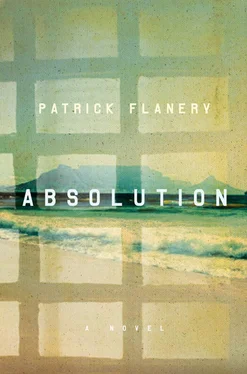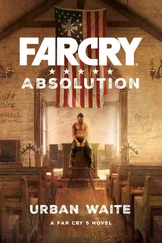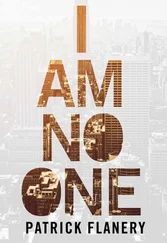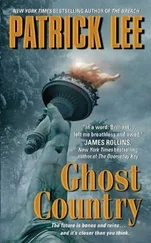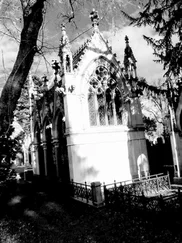Sarah and I cautiously explore the city centre with one of her fellow correspondents, a reporter for one of the wire services, and while nothing happens, we manage to frighten ourselves back to the northern suburbs. When I tell my colleagues that even the much-lauded Newtown Cultural Precinct felt too edgy for me, most of them laugh. ‘You’ve been in America too long,’ one says, slapping me on the shoulder, trying to be good-natured, I think, but also sounding a little resentful.
Despite these dissonances, I settle back into life in my country. Johannesburg grows on me in a way that I didn’t expect it would. The mania about security mutates into a feeling closer to instinct and reflex. To spend all of one’s life behind one kind of locked door or another, as many locked doors as possible, is simply the way things are, or at least the way Sarah and I choose to live while we’re here. I know my colleagues and my students — perhaps even Greg — would insist there are other ways, perhaps riskier but more alive, more engaged. It’s not a mode I’m capable of embracing.
By early April, as autumn begins to arrive, I finish transcribing my interviews with Clare. I settle on a form and a voice for the book — a rhythm that alternates between the historical account of her life and critical analysis of the novels, unfolding in a voice as closely approximating her own — the cool tone and sometimes angry formality, the dry tease and dismissal — as I find it possible to write. I finish a draft of the first two chapters, one about the English settler ancestors on both sides of her family, and the other about her first novel, Landing . I have always thought of Landing simply as a book about a woman who checks out of her stultifying Lower Albany farm life to live alone in a series of caves on the Tsitsikamma coast — a feminist refusal of gender norms and expectations, of the husband who forces himself on her, and an embrace of the natural world. Rereading it, I see the book is only superficially about these things. It is, more profoundly, about a refusal to be complicit in the privilege that apartheid bestowed upon and codified for whites. The heroine, Larena, instead embraces an outlaw position, living outside and beyond the reach of the law, invisible to the state, governable only by her own idiosyncratic sense of ethics and morals. I read it again and imagine Laura poring over those words as a young woman, finding a forward echo of herself, discovering in its pages a map for the route she might follow.
*
May. Sarah has managed to convince her editors that the Festival is worth a feature, so she accompanies me to Stellenbosch (in fact, having heard me talk endlessly about Clare for years, Sarah’s eager to meet her). The events last from Friday through Sunday and I’ve arranged to see Clare in private on Saturday. We fly to Cape Town on Thursday afternoon. The plane is packed with a sports team from a girls’ school in Johannesburg. All of the girls are in the same T-shirts, and most of them act as if they’ve never been on a plane before: they run around the cabin, talk loudly, begin singing what must be a team song. The adult chaperones and the flight attendants do nothing to control them. I complain to one of the chaperones who tells me that I should just calm down and go to sleep. As we begin the descent to Cape Town, the girls all mass on one side of the plane to get views of the mountain and the city. It feels as though the aircraft might not be able to take it, that the poor distribution of weight will be too much and we’ll fall into a tailspin, crashing into my old neighbourhood.
We pick up a car at the airport and drive through to Stellenbosch; after the sprawl and modernity of Johannesburg, the old town appears like an oasis out of historical fantasy, the Disneyland version of the eighteenth-century Cape, with its whitewashed restaurants and cafés and wine bars. I try to relax over dinner, but feel the tension wrapping itself around inside me. This is the chance, I know, to lay everything out with Clare, to put our mutual past on the table, and decide what it means.
Friday. Clare is one of three writers on the bill at tonight’s event, held in an austere modern lecture theatre in the university’s Arts Faculty building. Of the other two writers, one is an Australian now resident in San Francisco, the other a Zimbabwean who lives in Cape Town. Clare is the last to read and she’s chosen a long passage from near the beginning of Absolution .
It’s a strange thing to watch, Clare talking about herself, or some fictional self, in the third person, but I begin to see again the woman I met in Amsterdam, and through the process of reading she becomes someone other than the woman I came to know in Cape Town. Both selves, and the self who is described in the book, if that self is separate, all seem to exist simultaneously. In flashes I think I can see each one of them move across her face, take primacy for a moment, and then recede in deference to one of the others. There’s a dark humour in her reading that I didn’t find in the book when I read it myself. As I listen, I can’t help wondering if she knows the truth about Laura. There are moments towards the end of Absolution when she seems almost to suggest, to hint, that Laura was not what she appeared to be.
The audience is attentive if a little bemused by Clare, as if they aren’t sure what to make of the reading. Some have already managed to get a copy of the book and a man further down our row is following along in the text itself, occasionally shaking his head as though the words Clare is speaking don’t match the words on the page.
She reads for nearly forty minutes, longer than either of the others. At the end the applause isn’t as enthusiastic as it was for the Australian, who condescended to take questions from the Zimbabwean while Clare sat apart to one side, waiting for her turn. She stands on her own at the end and the evening finishes with the MC reminding us that all three authors will be signing books in the lobby, where there is a reception with wine donated by one of the local estates.
By the time Sarah and I make our way out of the auditorium the lines are already twenty-minutes deep and stretch outside to the street — the longest for the Australian, the next longest for Clare. The Zimbabwean has only a few dedicated admirers, alternative student types with Lenin hats and Peruvian cloth bags. Sarah has brought along a first edition of Changed to Trees that she acquired as a student.
As we reach the head of the line Clare sees us and stands. Marie, sitting back to one side, nods at me without smiling, but in a way that looks almost confidential, as if we share a secret. I introduce Sarah to Clare, who is more gracious than I expect her to be.
‘Would you mind signing my book?’ Sarah asks, sounding starstruck. ‘I don’t want to trouble you.’
‘It’s no trouble. After all, it’s why I’m here, holding this pen.’ Clare frowns for a moment, turning her face down to the book, but by the time she puts her name to the page and looks up again the frown is gone. ‘And you, Sam, I shall see you tomorrow at one o’clock sharp,’ she says, giving nothing away. ‘So much more to talk about.’
Saturday. After a morning of attending more readings and book signings with other writers, Sarah goes off to conduct interviews with the Festival organizers. Before we part for the day, she kisses me and takes my hand.
‘Try, if you can, to ask her about the past,’ Sarah says. I know she understands how difficult it is. ‘Try to put it to rest, for your own sake. If she doesn’t remember you, she doesn’t, but this uncertainty is going to drive you crazy.’
When I arrive at the guest house where Clare is staying, she orders coffee for us and sends Marie into town to buy a book the Australian writer recommended last night. ‘One of his own,’ Clare explains, rolling her eyes. ‘I told him I was troubled by the Orientalism I detected in his last novel. He retorted by pointing out that all the black characters in Absolution are maids or gardeners, and said I should read his previous book, because it would make sense of the one that disturbed me, although they are not sequels “in any obvious sense”, according to him. I call that impudence.’
Читать дальше
